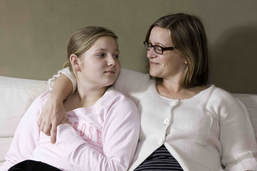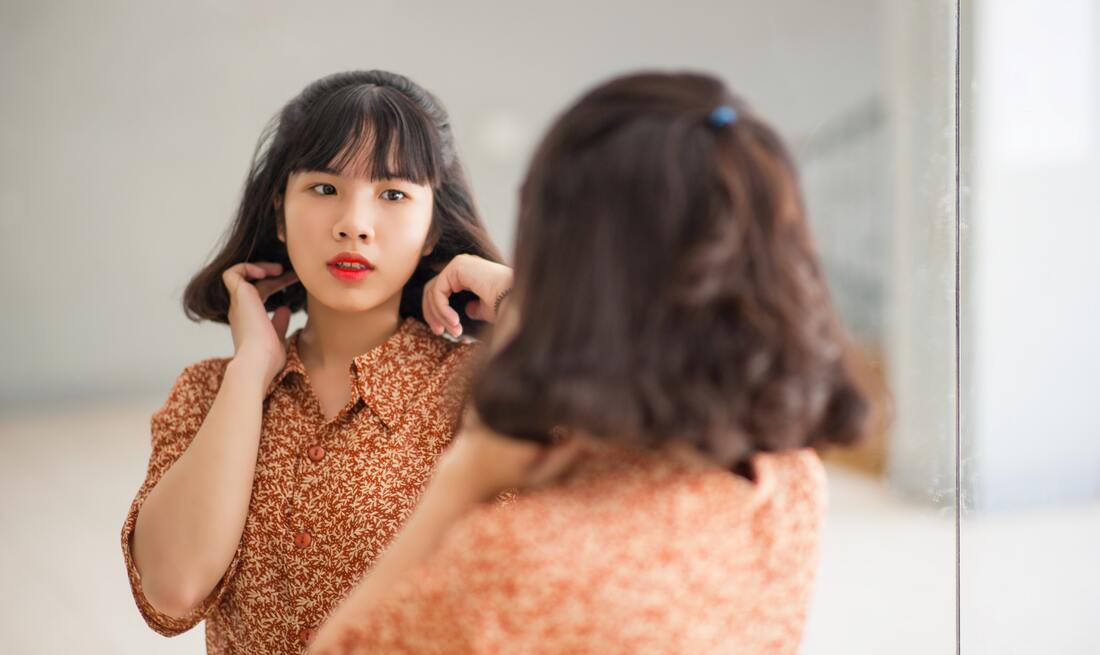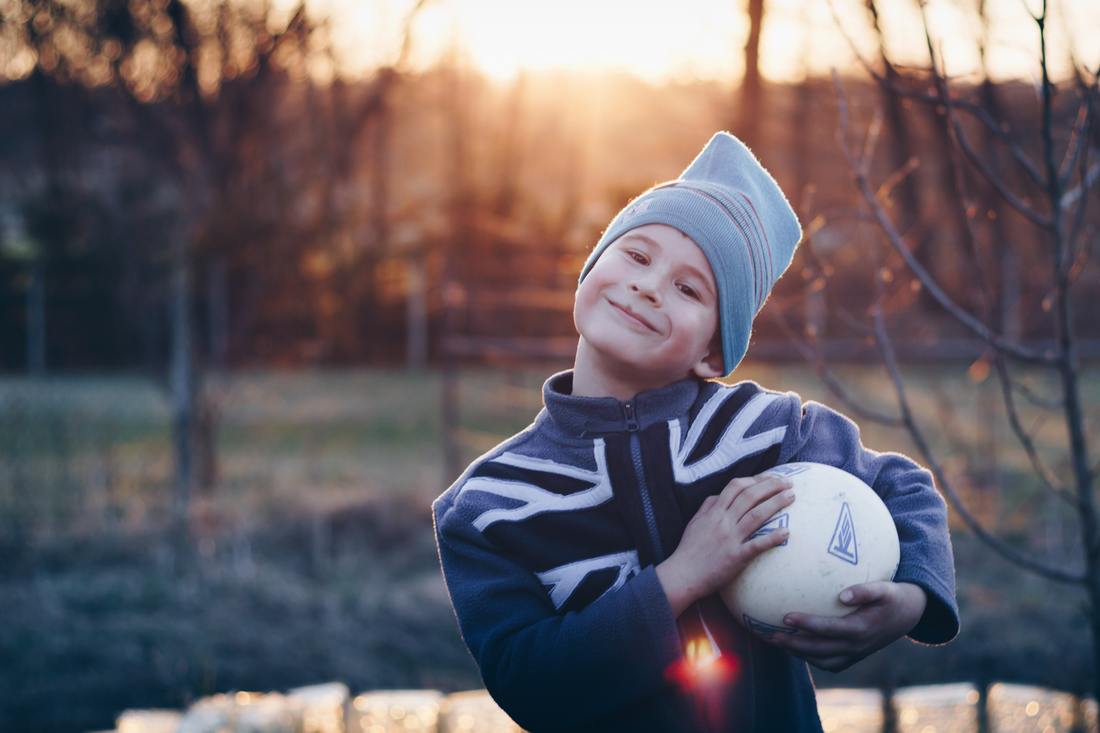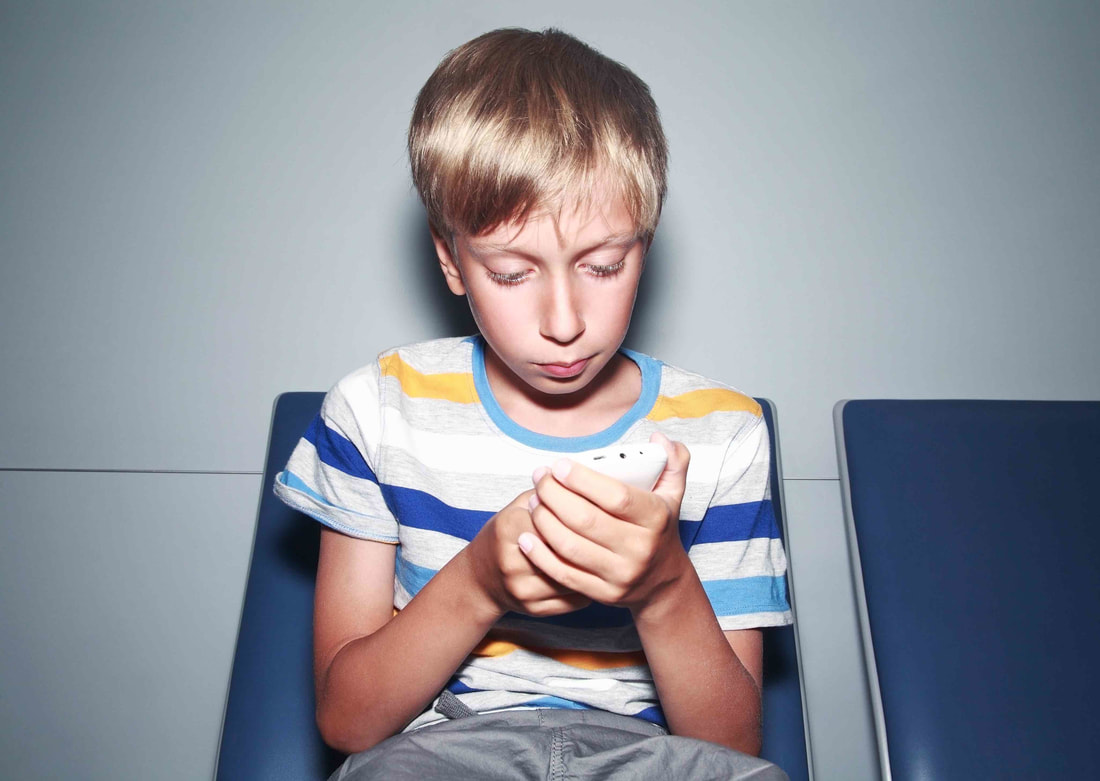|
The way we view our bodies has a huge impact on how we feel about ourselves and how we live our lives. Our perception of our bodies and the bodies of others starts to take shape early, and can be influenced greatly by our family’s values and beliefs, but also by ours peers and broader influences like the media. Unfortunately, from a young age children begin to show dissatisfaction and concern about their appearance and weight, which can then lead to engaging in behaviours that attempt to control or change their young bodies. By the end of the teenage years, most young people have been on a diet of some kind. As adults, the majority of women wish to lose weight (even those who are in the healthy weight range!) and approximately two-thirds of women withdraw from activities due to feeling negatively about their bodies. So how can we move towards being more accepting of our bodies and feeling better about ourselves? Here are some tips on how to build a better relationship with your body:
The way we view our bodies has a huge impact on how we feel about ourselves and how we live our lives. Our perception of our bodies and the bodies of others starts to take shape early, and can be influenced greatly by our family’s values and beliefs, but also by ours peers and broader influences like the media.
Unfortunately, from a young age children begin to show dissatisfaction and concern about their appearance and weight, which can then lead to engaging in behaviours that attempt to control or change their young bodies. By the end of the teenage years, most young people have been on a diet of some kind. As adults, the majority of women wish to lose weight (even those who are in the healthy weight range!) and approximately two-thirds of women withdraw from activities due to feeling negatively about their bodies. So how can we move towards being more accepting of our bodies and feeling better about ourselves? Here are some tips on how to build a better relationship with your body:
If you or your child are needing further support around body image or eating, please contact the clinic to book an appointment with a psychologist or dietician Eating disorders are a serious mental illness that affect many individuals of all ages, but they are especially prevalent and dangerous among teenagers. Research shows that 75% of people diagnosed with Anorexia Nervosa and 83% of people diagnosed with Bulimia Nervosa are between 12 and 25 years of age.* The outcomes of an eating disorder can cause serious harm. There are several types of eating disorders, but some of the most common are anorexia nervosa, bulimia nervosa, and binge eating disorder. Below is a brief overview of each disorder and some common warning signs:
*Volpe, U., Tortorella, A., Manchia, M., Monteleone, A.M., Albert, U., & Monteleone, P. (2016). Eating disorders: What age at onset? Psychiatry Research. April. 225-227. If you or your child are struggling with any of these warning signs, you might be feeling worried and unsure of what to do. Remember that you are not alone and there is support to guide you through this tricky time. Visit your GP to start your journey to eating disorder management and recovery, and then book an appointment with one of our psychologists or dietitians for therapy. Have you been feeling “off” or not like yourself? Have you struggled with feeling depressed or anxious? Have you struggled with your body image or feelings about your eating behaviours? If so, you are not alone and there are many others out there who experience similar feelings. It can be hard to deal with these difficulties alone, but you don’t have to! Getting support can be so helpful. Here are some tips to help you start to feel a bit better: 1. Notice, name and acknowledge your feelings and reactions. When we push down what we are feeling, it’s like trying to hold in a cough. Usually you hold it in and it gets stronger until it bursts out in a coughing explosion. When a feeling or reaction arises, we can say to ourselves: ‘I notice that I am feeling stressed, my body is telling me that through feeling hot and my heart racing.’ 2. Sit with that feeling without trying to make yourself feel bad about it. You can do this by saying ‘It’s been a hard day and I'm feeling upset, but that’s okay and this will pass’. Try to let the feeling wash over you. Each and every day that you try to notice your feelings and thoughts, helps you gain a better understanding of yourself. Self knowledge is so powerful in improving your mental health. Book in a session with Alayne to learn more about mindfulness and how to incorporate it into your life. What is body image? Body image refers to the thoughts and feelings that a person has towards their body and body parts. There are a number of things that can influence our body image, including: media, culture, family, and friends. Why is body image important? Having a healthy body image can lead to better self-esteem, happiness and confidence among children. On the other hand, having a poor body-image has been linked with a number of difficulties, including poor self-esteem, withdrawal from physical and social activities, low mood, and disordered eating. While there has been an emphasis on body image in females, it is important to also be mindful of body image in males . How can parents promote a healthy body image in children?
If you would like support regarding your child’s or your own body image, please contact us at Hopscotch and Harmony to discuss further with our psychologists and dietitian. By Shu-Lin Pook, Paediatric Dietitian 25% of children in Australia are either overweight or obese, and although the proportion of children getting bigger has remained stable, it is still 1 in every 4 children that is either overweight or obese. Weight management is not easy, and for a lot of families, it can be an unfavourable experience. Here are some of the statements or questions I tend to get when I see a child who has weight issues: Why is my child overweight/obese? When a child takes in more energy (from food and drinks) compared to the energy used for growth and daily activity, the excess energy will be stored in the body as fat. Most people will eventually become overweight or obese when they chronically take in more energy than what the body needs. It is something that is usually long term, as excessive weight gain is not something that happens overnight. But my child eats healthy! Yes, eating healthy is important. The definition of “healthy food” can have so many different meanings for different families. I am always hearing different opinions about what makes food “healthy”. Is it Organic? Vegan? Gluten free? Sugar free? Preservative free? Natural? Everyone is entitled to their opinion as to what is “healthy”, but more often than not it is not just the type of food that makes one overweight. It is also the portion that plays a big part on a child’s health. It is too hard to eat healthy Healthy eating is not something that you try for a week or for a month like a diet. Healthy eating, should really be part of your everyday lifestyle. I agree that fast food is cheap and convenient. BUT living on diets is not sustainable and therefore not likely to be successful in the long run. Part of healthy eating is having a positive relationship with food, and eating according to your hunger cues: eat when you are hungry, and stop when you are just full. It is genetics. My child is big because of me (or partner) Genetics certainly plays a role; there are some children who do have genetic or metabolic disorders that can increase their risk of being overweight or obese. However, genes alone do not explain why the rate of overweight and obesity is increasing at such an alarming rate. I feel like I am depriving my child when I restrict *junk food / chocolate / lollies, etc* Parents sometimes feel guilty for not providing their chid with discretionary food (food high in energy with very little nutrition). Remember, you are not depriving your child of love from not giving them discretionary food. There are many other ways and means to provide your child with love. It can be riding a bike together or going to the beach as a family and enjoy the time spent together. Think of food as something to nourish your child’s body rather than a treat or a reward. How much weight my child needs to lose? A child’s weight is different to an adult’s weight. Children are supposed to grow and gain weight, whereas the weight of a healthy adult should remain idle. For this reason, I do not recommend that children should lose weight. Rather, allow your child to grow into their weight by allowing their height to catch up to their current weight. Why does it matter? As long as my child is happy, that’s the most important thing. Unfortunately, it DOES matter. When a child carries too much weight, complications can occur. Medical complications such as developing fatty liver, diabetes, having sleep issues, respiratory issues (e.g. exacerbation of asthma), and pain in joints are just some of the complications. What about the psychological impact? Well, children who are overweight/obese are more likely to develop lower self-esteem, depression, negative body image, be discriminated against, and so forth. Ultimately, children who are overweight have a very high chance of being overweight as an adult. As a parent, you can make a difference! Here are somethings you can try right now at home:
Remember, your role as a parent is to provide your child with nutritious food and to make sure they grow well. If you would like to learn more about healthy eating and weight management, speak to an accredited practising dietitian who has experience working with children. Contact us if you would like to speak to me about how to manage your child’s weight, or how to get your child to build a positive relationship with food.
by Jessica Cleary, Psychologist As a parent you have the opportunity to be your child's most influential educator in regards to all things sexuality and reproductive health. The problem is, many parents feel awkward about having these conversations and are not really sure how to begin. So some parents don't go there at all to avoid the discomfort. If you avoid teaching your child about sexuality then you run the risk of someone else doing it for you. Sex ed programs in schools can teach some information, but the other biggest influencer these days is what kids read and see on the internet. With the average age of first exposure to pornography around 11 years (with some researchers stating it is as young as 8), we need to be proactive in educating our children. If we don't then children and teens might learn that the violence and unrealistic behaviour demonstrated in readily accessible mainstream pornography is normal sexual behaviour. So, let's go back to the beginning... Name it, don't shame it! Cutesy body part nicknames instead of scientific terms are really not appropriate if we want to empower our children to have positive body image. If it is difficult for you to use anatomically correct words to describe genitals, think about why that is. Did you inherit this discomfort from your own parents? We don't want our children to feel that there is anything shameful about their bodies. By encouraging the use of correct body part names we send the message that their body is normal - whether that body part be a shoulder, penis, liver, clitoris, scrotum or knee. It's body science! When we don't use the name of certain body parts we send the message that those words are not to be spoken. This can lead to children feeling shame about their bodies and can discourage children asking questions about sexual development and seeking help when needed. Instead they might look to the internet to get their answers. Additionally, if something of concern were to happen to a child regarding inappropriate touch, then it's harder for the child to communicate this to a trusted adult in a way that is understood.. "He touched my noodle" isn't going to get the same attention as "he touched my penis". Getting your vaginas confused with your vulvas? It doesn't help that many of us adults haven't been taught anatomically correct terms for our reproductive and sexual anatomy. Unfortunately, it's pretty common for girls in particular to not know the correct names of their body parts. Knowing the accurate names helps in a medical situation or in abuse situations. (FYI: the vulva is the external female genital organs and the vagina is the internal organ connecting the genital organs to the uterus). It's never too early to have THE talk... Actually, you never have to have THE talk. Instead, speak early and speak often about all parts of the body and all things sexuality as they come up. The more you talk about the body the easier it will be for both of you. And when the more curly questions start rolling in you can continue the conversation in age appropriate terms. If your child isn't asking any questions then take the lead with having resources available for them to look it if they are interested. If you need some age-appropriate ideas then check out these reading materials. If you're taken off-guard with a particularly tricky question, say "That's a very interesting and important question. Let me have a think about it and I'll answer it for you tonight". Make sure you do address it! Don't chicken out. ...but it's also never too late to start the conversation If you have older kids and are worried because you have never talked to them about sex stuff, then be assured that it's never too late. Strike up a conversation and admit: "You know, I realise that I should have started talking to you about relationships and sex earlier than now, but I would really like to change that." Let them know that you want to be there to answer questions and to help problem solve when issues arise.  Is your embarrassment getting the better of you? You've gotta just rip that bandaid off and do it! You might feel uncomfortable at first but this feeling will pass, especially when your children just take the information in their stride, as kids generally do. If you have young children then nappy changes or bath time are ideal opportunities to name genitals just as you do other body parts. After you do it a few times your discomfort will subside. Looking through books on the reproductive system with your primary school aged child sends the message that you are the go-to person when they have questions and are curious about something to do with sex. Don't make a big deal about it, answer questions in a casual way, and have books on the reproductive system accessible just like you do with other science books on astronomy and the environment. If you are really struggling, just be honest. Start with "I feel a bit embarrassed talking about this because my parents and I never spoke about these things when I was growing up. But I think it's really important for you to know so I'll give it my best shot." Tell them that "You can always ask me any question you have and I'll do my best to answer it." It's up to us parents to manage the discomfort that we might have around sexuality and the body so we can be the primary source of information for our kids. A child's questions are often simple and not sexual and deserve to be met with positivity, openness, and accuracy. You've got this!
|
Categories
All
|
Hopscotch & HarmonyAt Hopscotch & Harmony Psychology, you can expect compassionate care and evidence-based guidance on your journey to wellness.
With clinics in Werribee and Belmont, as well as providing online counselling to clients who live throughout Australia, our dedicated team of psychologists and dietitians are committed to providing support to children, teenagers and adults. With a focus on understanding your unique needs, we offer tailored solutions to foster growth and resilience. Trust in our experience and dedication as we work together towards your well-being. Welcome to a place where healing begins and possibilities abound. |
Our services |
Contact usHopscotch & Harmony
Child, Teen and Adult Psychology Our Locations:
WERRIBEE: 1/167-179 Shaws Rd
BELMONT: 92 Roslyn Rd AUSTRALIA-WIDE: Online counselling |
Hopscotch and Harmony respectfully recognise the Aboriginal and Torres Strait Islander people as the first Peoples of the continent now called Australia.
We acknowledge the Bunurong and Wadawurrung people of the Kulin Nation, the traditional owners of the land on which we work, and pay our respects to their Elders, past, present and emerging.
© 2024 Hopscotch and Harmony Pty Ltd










 RSS Feed
RSS Feed
